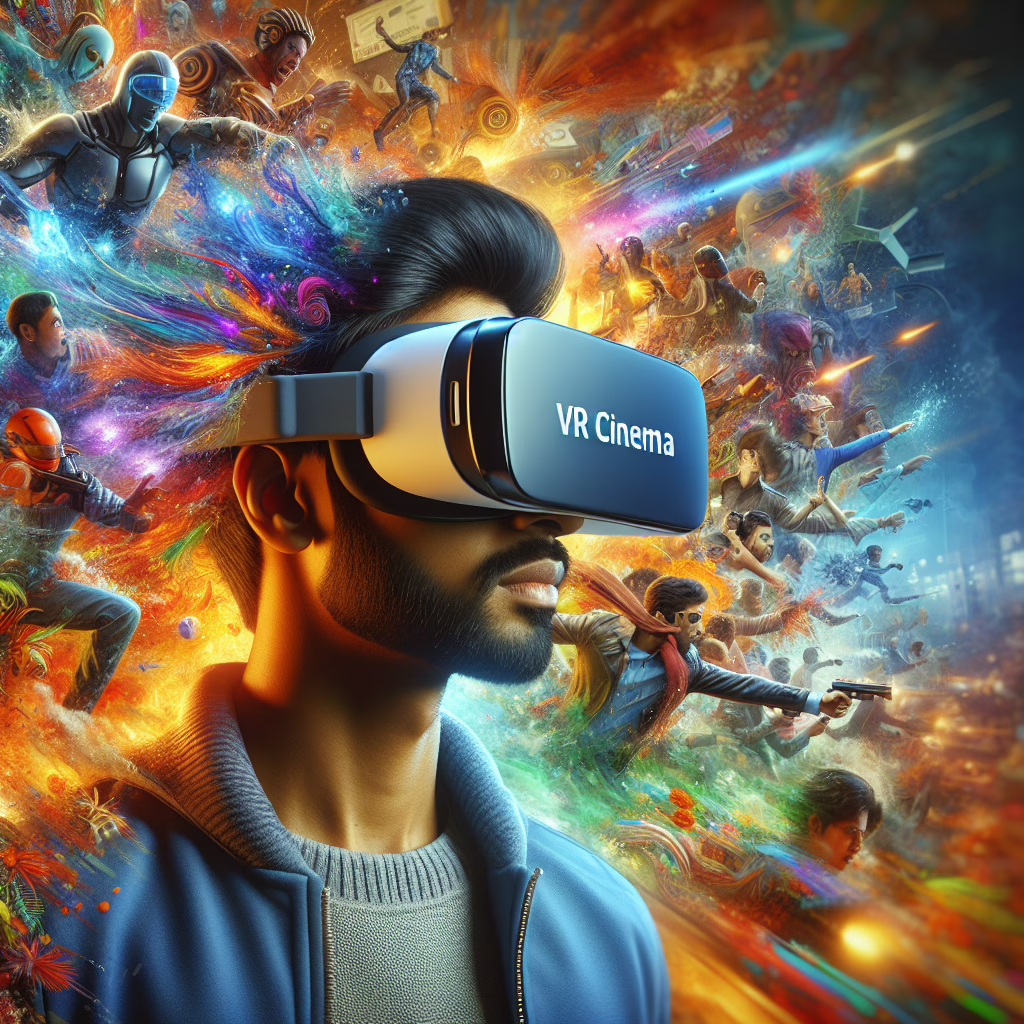When you think of visionary filmmakers, James Cameron undoubtedly springs to mind. Known for his epic creations like Avatar and Titanic, Cameron is now setting his sights on a new horizon: Virtual Reality (VR). He believes that VR is the future of cinema. But wait! Before we all don our headsets and start critiquing the next big blockbuster in a fully immersive environment, there’s a catch. Meta needs to solve a major content problem first.
The Visionary’s Perspective on VR and Cinema
Cameron envisions a world where viewers aren’t just passive observers but active participants in cinematic storytelling. Imagine not just watching the story unfold but stepping into it, interacting with characters, and influencing the plot! Sounds like a dream, right? Or perhaps it’s just a way for us to finally realize our lifelong fantasy of being in a superhero movie.
However, as much as we’d love to don our VR headsets and leap into the world of Avatar, there’s a bit of a hiccup. The content for these immersive experiences simply isn’t up to snuff. While Cameron can whip up incredible visuals and engaging narratives, the platform that delivers them, namely Meta, seems to be wrestling with content creation as if it were caught in a wrestling match with an inflatable dinosaur—an entertaining idea, but ultimately ineffective.
Meta’s Content Conundrum: The Elephant in the VR Room
Let’s face it: content is king in any realm of entertainment, and VR is no exception. Meta has made strides in developing the technology, but without compelling content, all that fancy gear is like having a Ferrari without gas—pretty to look at but not going anywhere fast!
Currently, the majority of VR experiences available can feel more like tech demos than full-fledged cinematic adventures. Sure, you can ride roller coasters or explore alien worlds, but how many times can you do that before yearning for an actual narrative? Meta needs to step up its game and provide engaging stories that captivate users while making them forget they’re wearing goofy headsets. Here are some content ideas that could elevate the VR experience:
- Immersive documentaries that allow users to explore historical events in 360 degrees.
- Interactive storytelling where decisions shape the outcome of the narrative.
- Collaborative VR experiences that let audiences attend virtual premieres or events together.
The Path Forward: Collaboration is Key
Cameron suggests that collaboration between filmmakers and tech companies is essential for crafting narratives that truly harness VR’s potential. Imagine iconic directors partnering with innovative tech wizards to create experiences that leave audiences breathless (and not just because they forgot to take off their headsets). The blending of artistic vision with cutting-edge technology could yield spectacular results.
This doesn’t mean we should throw caution to the wind and blindly dive into every VR project available. Quality over quantity should be the mantra here. Audiences will only embrace this new medium if they feel it adds value to their cinematic experience rather than detracts from it. It’s about ensuring that each VR experience feels like a carefully crafted cinematic journey.
What Lies Ahead for VR in Cinema?
The horizon looks bright for VR enthusiasts! With filmmakers like James Cameron championing this technology, it’s clear that the potential for immersive storytelling is vast. However, until Meta figures out how to tackle its content issues, we might be stuck watching real-life soap operas instead of participating in our own epic sagas.
If we’re lucky, we might see innovations by 2025 that transform how we consume stories altogether. Perhaps our living rooms will become portals to distant galaxies or ancient civilizations where we can experience history firsthand—without needing a time machine!
In conclusion, James Cameron’s vision for the future of cinema through VR is an exciting prospect filled with possibilities. However, until Meta rolls up its sleeves and addresses its content challenges, we’ll have to keep our popcorn close and our headsets charged while dreaming about what could be.
We invite you to share your thoughts on this fascinating intersection of technology and cinema! What do you think about James Cameron’s vision? Are you excited about the future of VR in movies? Don’t hesitate to dive into the discussion and share your own ideas about how VR could reshape the cinematic landscape.
A special thanks to TechRadar for inspiring this article! For more insightful articles on technology, check out our posts on Android phones and automatic reboots and the innovative future discussed in The 2025 Vergecast streaming draft.

